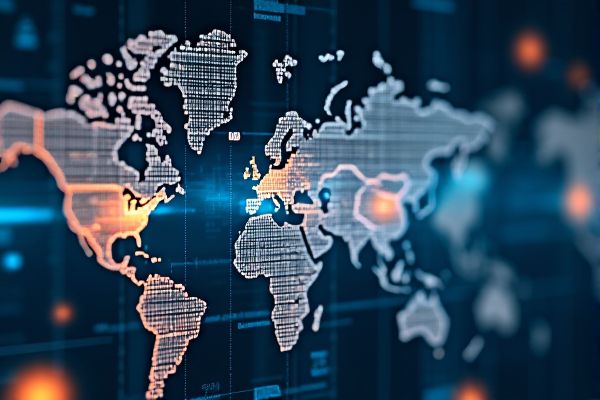
AI enhances the tourism industry by personalizing travel experiences, enabling tailor-made itineraries based on user preferences and past behaviors. Smart chatbots provide 24/7 customer service, addressing inquiries and helping with bookings instantly. Advanced analytics allows companies to forecast trends and manage resources efficiently, improving operational efficiency. Virtual reality experiences offer potential travelers immersive previews of destinations, increasing engagement and interest.
AI usage in tourism industry
Personalized Travel Recommendations
Personalized travel recommendations powered by AI can significantly enhance the customer experience in the tourism industry. By analyzing data from user preferences and past travel behavior, platforms like TripAdvisor can suggest tailored itineraries or destinations. This customization increases the likelihood of customer satisfaction and repeat bookings. The chance of discovering hidden gems or off-the-beaten-path experiences also improves, benefiting both travelers and local businesses.
Virtual Reality Tours
Virtual reality tours have the potential to enhance the tourism industry by providing immersive experiences for travelers. This technology allows users to explore destinations like the Louvre Museum from their homes, increasing interest and potentially leading to actual visits. By integrating AI, these tours can be personalized based on user preferences, improving customer engagement. The possibility of offering unique virtual experiences may offer a competitive advantage for institutions involved in tourism.
Chatbots for Customer Service
AI usage in the tourism industry, such as chatbots for customer service, can enhance user experience by providing immediate assistance. For instance, a chatbot can help travelers book accommodations at popular hotels like Marriott, increasing efficiency. This technology has the potential to reduce wait times and streamline communication, improving overall customer satisfaction. The chance of increased bookings and customer loyalty could benefit travel agencies looking to differentiate themselves in a competitive market.
Predictive Analytics for Demand Forecasting
AI usage in the tourism industry can enhance demand forecasting through predictive analytics. By analyzing historical data, such as travel patterns and booking trends, companies can better anticipate customer needs. For instance, a hotel chain might utilize these insights to optimize room rates and inventory management. This approach increases the likelihood of maximizing revenue and improving customer satisfaction.
Automated Booking and Reservation Systems
Automated booking and reservation systems in the tourism industry can enhance customer experience by providing real-time availability and instant confirmations. These systems may allow travel agencies, like Expedia, to streamline their operations, reducing manual errors and improving efficiency. The integration of AI can also personalize recommendations based on user preferences, increasing the likelihood of bookings. Overall, adopting these technologies presents the potential for increased customer satisfaction and higher revenue margins.
Smart Pricing Strategies
AI can enhance smart pricing strategies in the tourism industry by analyzing real-time data on customer demand and market trends. For example, hotel chains like Marriott use AI algorithms to adjust prices dynamically, maximizing occupancy and revenue. This capability allows businesses to respond quickly to fluctuations in travel patterns or events. By leveraging predictive analytics, companies can gain a competitive edge in offering personalized pricing to attract more customers.
Sentiment Analysis for Customer Feedback
AI can enhance the tourism industry by utilizing sentiment analysis to evaluate customer feedback effectively. For example, a hotel brand can analyze reviews to identify common themes, helping improve customer satisfaction. The possibility of adjusting services based on real-time feedback could lead to increased loyalty and repeat bookings. This technology also offers insights into market trends, allowing businesses to adapt to changing customer preferences more swiftly.
Augmented Reality City Guides
Augmented Reality (AR) city guides can enhance the tourism experience by providing interactive and immersive information about various attractions. Tourists can use their smartphones to access real-time data, such as historical facts or local recommendations, increasing their engagement with the environment. Institutions like tourism boards are exploring AR technology to create innovative marketing strategies that can attract more visitors. The possibility of transforming standard travel experiences into interactive adventures presents a competitive advantage in a rapidly evolving industry.
Language Translation Services
AI can enhance the tourism industry by providing efficient language translation services that improve communication between travelers and locals. This technology reduces language barriers, enabling smoother interactions in hotels, restaurants, and attractions. For instance, a travel company may use AI-driven apps to assist tourists in understanding local customs or directions. The potential for increased customer satisfaction and streamlined experiences presents a significant advantage for businesses in this sector.
Facial Recognition for Seamless Check-In
Facial recognition technology can enhance the check-in process in the tourism industry, allowing for faster and more efficient arrivals at hotels and airports. This system reduces the need for physical identification, streamlining the experience for travelers and potentially improving customer satisfaction. For example, a hotel chain like Marriott could implement this technology to facilitate smoother guest interactions. The possibility of reduced wait times and increased security presents clear advantages for both service providers and customers.
 techknowy.com
techknowy.com